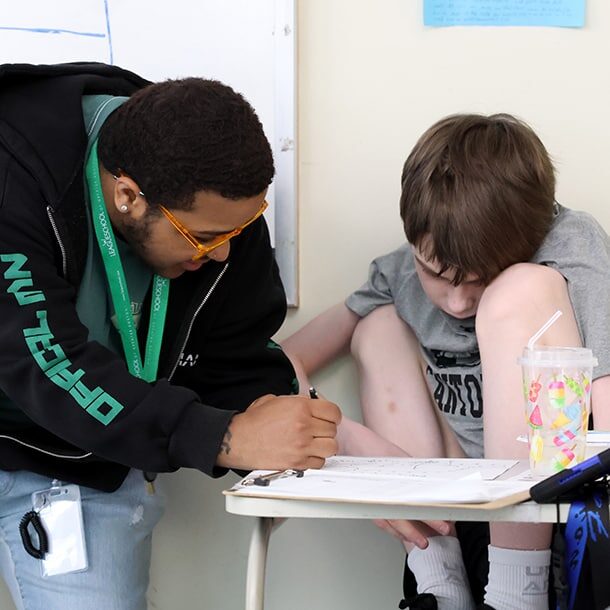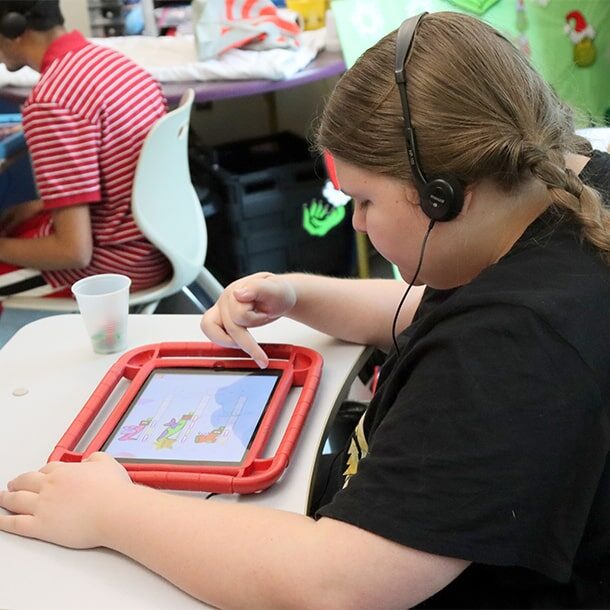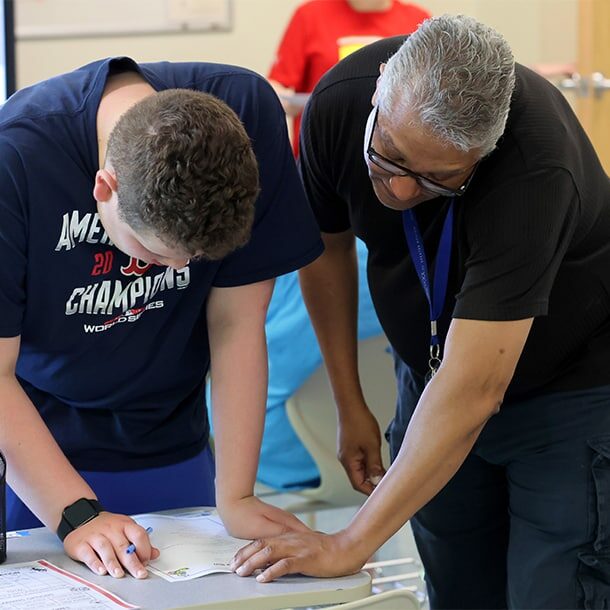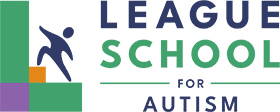Day Programs
360° Instruction
Our day programs put the League School’s individualized, collaborative, and pioneering approach into action. We offer three distinct and unique day programs – Foundations, Transitions, and Pathfinders – that work together to meet the diverse needs of our student population.
Each program is designed around age, developmental communication stage, and support level, with curricula and instruction individualized to the learning style of each student.
- Foundations provides moderate to intensive supports for students ages 3 to 13.
- Transitions provides moderate to intensive supports for students ages 14 up to 22.
- Pathfinders provides moderate supports for students ages 12 up to 22.
Students are placed into the best program based on their specific needs, required support, and age. They may transition to another program when they age out and/or their support needs change.
Each program has a dedicated team including a head teacher, a speech-language pathologist, an occupational therapist or certified occupational therapy assistant (COTA), a clinician, and a board-certified behavior analyst (BCBA). Each student has access to specialists and services based on their unique needs. Most services happen in natural settings like the classrooms, job sites, and on community outings to help generalize learned skills. Students who require physical therapy receive those services through a separate contract.
Foundations
Ages: 3 to 13 years
Population: early childhood and elementary-aged students who typically need moderate to intensive supports from our educational and professional staff
Focus: designed to meet the individual needs of students who require a wide range of services and our highest level of support to fully experience and grow in the educational environment
Skills Development: communication skills, emotional and physical regulation, pre-academic and academic skills, and daily living skills


Transitions
Ages: 14 to 21 years
Population: students pursuing a vocational path in their postsecondary plans
Focus: development of vocational skills and independent living skills to prepare students for success in the world of work and adult living
Skills Development: functional academic skills, vocational training, social communication, emotional and physical regulation, independent living skills, community experiences, and safety awareness
Pathfinders
Ages: 12 to 21 years
Population: students at the elementary, middle, and high school level who may be working toward a high school diploma; students who are socially well matched but whose program may not have the same level of academic emphasis; post high school students who are transitioning to a work environment or post-secondary education
Focus: a balance of rigorous academic classes and vocational internships in the school and community to develop and practice skills needed for future education and employment success; students typically take the standard MCAS test
Skills Development: meeting graduation requirements, standardized test taking, vocational skills, independent living skills

FOR MORE INFORMATION
For more information about our day programs, please reach out to League Admissions Coordinator, Lynne Goyuk at admissions@leagueschool.com or 508-850-3900 ext. 171.
